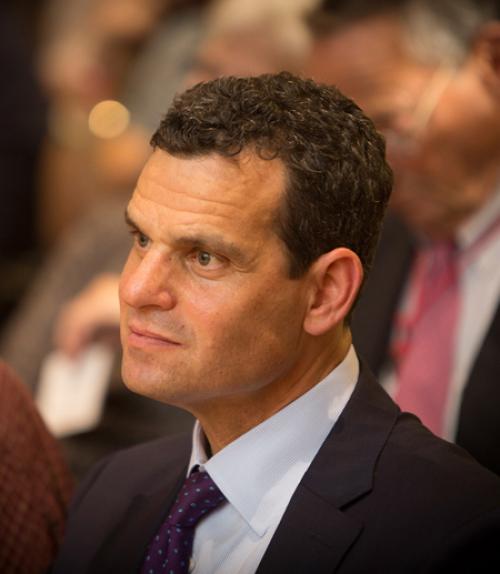When David S. Cohen ’85 was a student at Cornell, he was active in the Peace Studies Program as president of the Cornell Civil Liberties Union. He helped negotiate agreements between Cornell officials and apartheid protestors and stood on the steps of Willard Straight Hall to support ROTC members who had been kicked out of the military because of their sexual orientation.
Twenty years later, Cohen is now in a new role as deputy director of the CIA. But he doesn’t see a dissonance between those two eras in his life.
“I see my job as protecting the American way of life and doing so in a way that is wholly consistent with our laws and our precepts,” Cohen said during a recent interview on campus. “We are asked to do really hard things in sometimes ambiguous situations, but our sole purpose is to help the president and senior policy makers understand the world and be well-informed about threats to our country. Our mission is fundamentally tied to advancing the American way of life.”
Cohen delivered this year’s LaFeber-Silbey Endowment in History lecture Sept. 17 to a packed crowd at the Hollis E. Cornell Auditorium in Goldwin Smith Hall.
Cohen came to Cornell planning to major in government and pre-med, but the medical interest ended after “about a semester,” he said, when his interests in politics and government intensified.
As a student, Cohen’s psychology and social psychology classes taught him “when you look at a situation you come with preconceived notions and biases,” he said. “I’ve learned to constantly ask myself what other angles another person might see that I don’t.”
Along with this heightened awareness of differences, Cohen said Cornell classes taught him to “ask hard questions, think creatively about problems and not take orthodoxies as truth.”
After graduation, he stayed at Cornell for a year to work on a research project with the Peace Studies Program, exploring the changing relationship between the U.S. and the Soviet Union, along with other academics at Cornell and beyond (including, coincidentally, Ash Carter, now secretary of defense and Condeleezza Rice, former secretary of state).
“But at that time, I didn’t see the relationship between what we were doing and actual policy,” he said.
Even so, after law school, Cohen sought out a job in Washington, thinking that one day he’d like to be involved in government. After practicing privately for nine years, Cohen was tagged by a friend to join the Treasury Department, where he worked on anti-money laundering policy under then-Secretary Larry Summers. Those policies would become part of the foundation for the Patriot Act, signed by Congress after 9/11, giving officials new tools to fight against terrorism.
Cohen left for private practice again during the Bush years, but returned to Treasury after President Obama’s election, where he spent the last five years working on financial methods, including sanctions, to combat terrorism. In that role, he worked closely with CIA officials.
“The fuel for sanctions is intelligence,” Cohen said. “We need to know who’s trying to collect money for Al-Qaeda and where they have their bank accounts. In this way, we can map out a network of people working together.”
Cohen said his days begin with briefings on the latest intelligence concerns around the world, briefings that would unnerve most regular citizens.
“There are a lot of people out there planning to do us harm,” Cohen said, but he noted that concerns about those threats is balanced by the work done to stop them. “We have extremely capable and dedicated people seeing that same information and working to protect us. They are day-in and day-out addressing these threats in brave, heroic and very smart ways.”
Cohen’s Cornell lecture highlighted three new objectives for the CIA: improvements in human intelligence, creation of a new body within the CIA devoted to leverage the digital domain and promoting an inclusive work force with more diversity at all levels of the CIA.




